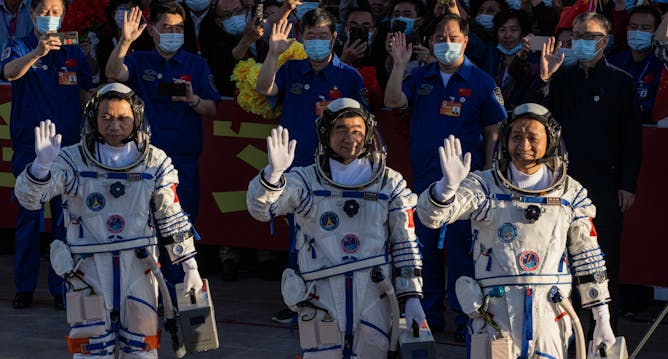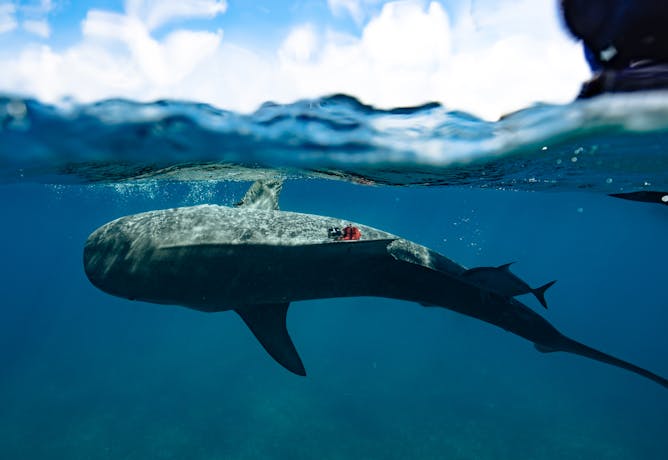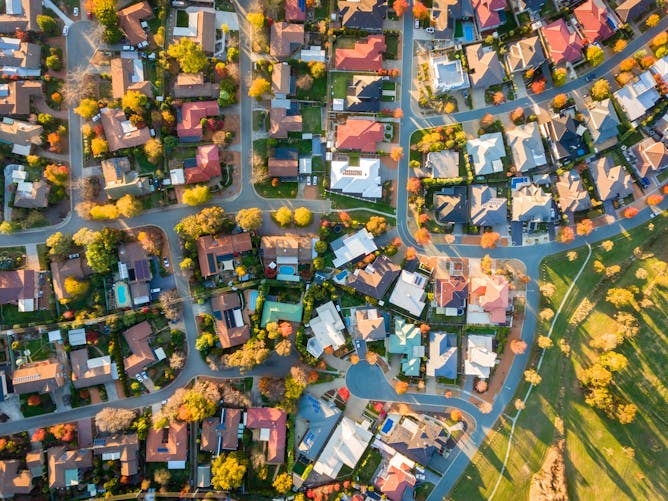|
|
|
|
China’s list of achievements in space seems to be growing at warp speed. Two years ago, it became the first country to land on the far side of the Moon. Since then, it has safely brought back the first samples of lunar rocks to Earth since the 1970s, and managed the notoriously difficult task of landing a rover on Mars.
Now Chinese astronauts have completed the country’s first ever spacewalk, an event that took place at its new space station Tiangong. The three astronauts, who reached the station on 17 June, are now busy working on the orbiter and preparing it for future crews. Yet while Tiangong may end up becoming the only functioning human outpost in space once the International Space Station gets decommissioned, there are signs that the country is
looking to collaborate on it with other countries.
Back on Earth, researchers from several different countries have solved a longstanding problem in biology: why some fish are warmblooded. And it turns out that people in suburbs have a bigger carbon
footprint than those living in cities or the countryside.
|
Miriam Frankel
Science Editor
|

|
|

Chinese astronauts Tang Hongbo, Nie Haisheng, and Liu Boming during ceremony before heading to Tiangong.
ROMAN PILIPEY/EPA
Gareth Dorrian, University of Birmingham; Ian Whittaker, Nottingham Trent University
China's space programme is going from strength to strength.
|

Some sharks are warm-blooded.
Diego Camejo
Lucy Harding, Trinity College Dublin
Warm-blooded fish can swim 1.6 times faster than their cold-blooded relatives.
|

Jandrie Lombard/Shutterstock
Sabrina Zwick, United Nations University
New research indicates that people in urban areas, on average, have the smallest carbon footprints, and those living in the suburbs the highest.
|
Arts + Culture
|
-
Dave O'Brien, University of Edinburgh; Mark Taylor, University of Sheffield
Research has found that the arts industries are lacking working-class representation and that the barriers to entry start early in life
-
Claudine van Hensbergen, Northumbria University, Newcastle
Statues can help us more fully understand our past and celebrate the contribution of women.
-
Adam Powley, University of East London
The rule has been chopped and changed countless times since football's official beginnings. Should it be done away with altogether?
|
|
Politics + Society
|
-
Rachel Smith, Cardiff University
The written word has guided us through distance from our loved ones for centuries. Here's how it can bring us closer
-
Nándor Révész, University of Portsmouth
As Slovenia takes over the rotating EU Council presidency, other member states should not let Janez Janša follow in Hungary's authoritarian footsteps.
-
Catherine Davies, University of Leeds; Alexandra Hendry, University of Oxford; Nayeli Gonzalez-Gomez, Oxford Brookes University
Not being able to attend nurseries due to lockdown has affected children's growth in emotional, linguistic and physical terms. The longterm effect could heighten inequality
|
|
Business + Economy
|
-
Libby (Elizabeth) Sander, Bond University
Our study, measuring heart rate, skin conductivity and emotion in controlled conditions, shows the effects of office noise are very real.
-
Steven McCabe, Birmingham City University
Reassurances around the takeover of UK's fourth largest supermarket chain come with a strong sense of deja vu.
|
|
Health + Medicine
|
-
Maximilian de Courten, Victoria University; Hans Westerbeek, Victoria University
How well are the Tokyo Olympics prepared for a COVID crisis when there is still an outbreak in the country, the vaccination rates are low and athletes are asked to socially distance?
-
Caitjan Gainty, King's College London
People have denied germ theory since the moment it was born in the late 19th century.
|
|
Education
|
-
Xanthe Whittaker, University of Leeds; Jennifer Tomlinson, University of Leeds; Kate Hardy, University of Leeds
From nursery closures to families self-isolating, COVID has disrupted children's access to pre-school care. This impacts their development, and their parents' ability to work
|
|
Environment + Energy
|
-
Brett Jameson, University of Victoria
Nitrous oxide is a potent greenhouse gas, 300 times more powerful than carbon dioxide. Global emissions of N2O are on the rise as a result of human activities — and their impact on ocean ecosystems.
|
|
| |
Featured events
|

|
Online Oxford Martin School Event, Online, Oxfordshire, N/A, United Kingdom of Great Britain and Northern Ireland — University of Oxford
|

|
Sustainable Places Research Institute, Cardiff University, Cardiff, Cardiff [Caerdydd GB-CRD], CF10 3BA, United Kingdom of Great Britain and Northern Ireland — Cardiff University
|

|
University of Essex, Wivenhoe Park, Colchester, Essex, CO4 3SQ, United Kingdom of Great Britain and Northern Ireland — University of Essex
|

|
University of Essex, Wivenhoe Park, Colchester, Essex, CO4 3SQ, United Kingdom of Great Britain and Northern Ireland — University of Essex
|
|
|
|
| |
| |
| |
| |
| |
|
|
|
|
|
|
|